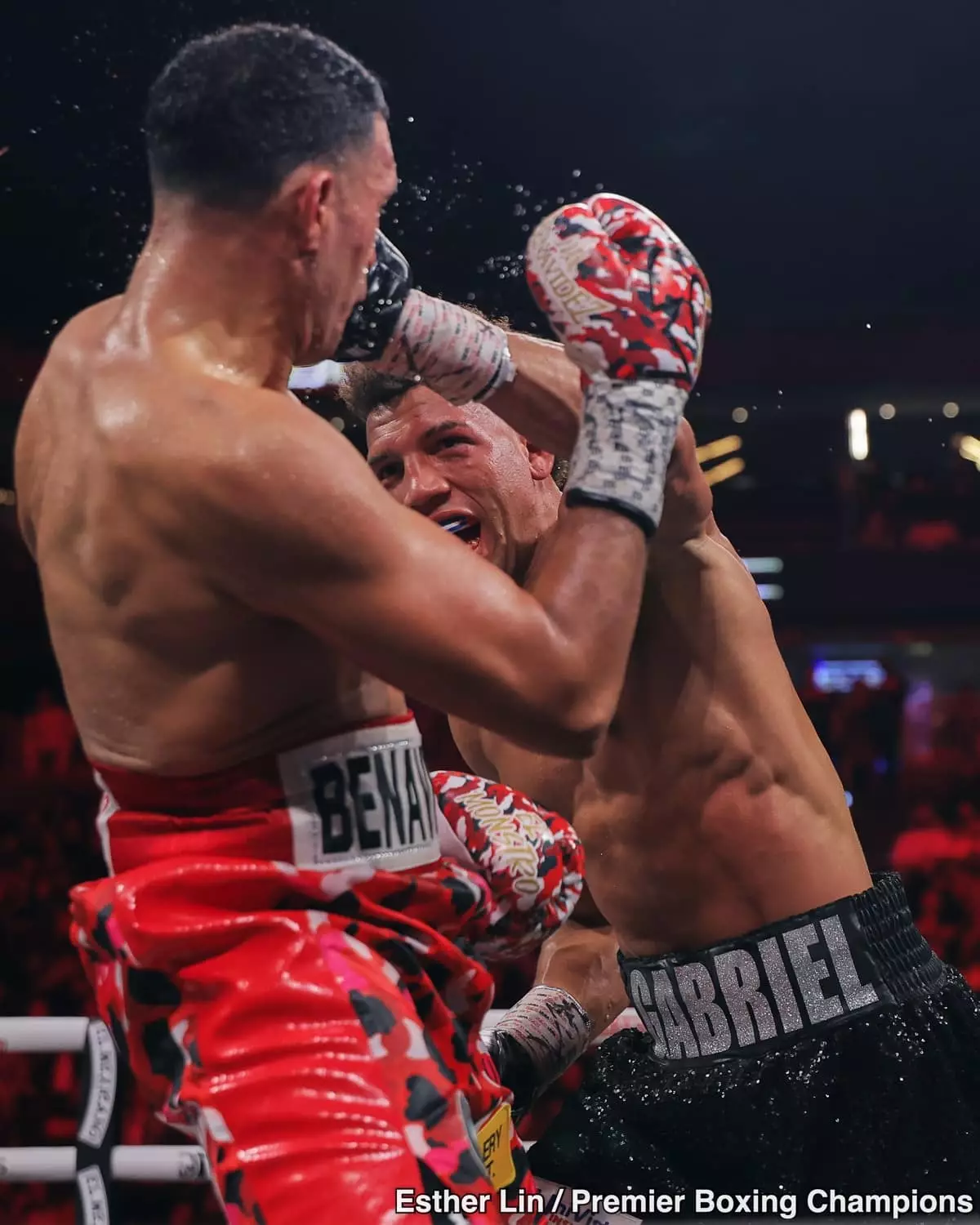The recent bout between David Benavidez and David Morrell at the T-Mobile Arena in Las Vegas has become a pivotal topic within boxing circles. A rematch has been suggested by promoter Sampson Lewkowicz if there is sufficient public interest, and fans are already buzzing about the possibility. This article delves into the dynamics of the showdown, the controversy surrounding the judges’ scores, and the implications for both fighters moving forward.
The fight displayed contrasting outcomes for the two boxers. Benavidez left the ring with a swollen face, one that was reminiscent of a bruised warrior returning from battle. The visual starkly contrasted with Morrell, who appeared unscathed and ready for more. At the age of 27, Morrell has demonstrated remarkable agility and power, and many observers noted that his punches carried more force than the volume of rapid shots offered by Benavidez. This performance by Morrell not only showcased his capabilities but raised critical questions about the effectiveness of Benavidez’s boxing style, which seemed more focused on scoring points than delivering decisive blows.
Judges’ Scores: The Controversy
Despite what many felt was a close contest, the judges awarded Benavidez a unanimous decision, scoring the fight 115-111 on two cards and 118-108 on the third. However, such scores do not reflect the relentless competition that unfolded over the 12 rounds. Many spectators and analysts believe that Morrell’s powerful strikes should have tilted the scale in his favor, and the way in which he managed to hurt Benavidez on multiple occasions—including a significant knockdown in the 11th round—adds to the complexity of the judging. This discrepancy points to the need for a more nuanced approach to scoring in professional boxing, one that recognizes not just sheer volume of punches but their impact and effectiveness.
Sampson Lewkowicz’s comments post-fight indicate an understanding of the intricacies of boxing promotion and fan engagement. He acknowledged the competitive nature of the fight, suggesting that, despite Benavidez winning, a rematch might be warranted given the desire expressed by fans. This awareness is crucial, as the relationship between promoters, fighters, and fans defines the sport’s ecosystem.
Moreover, Lewkowicz is strategizing Benavidez’s next steps, particularly in light of the upcoming WBC title picture involving Artur Beterbiev and Dmitry Bivol. Depending on the results, Benavidez might find himself waiting for his shot at the championship yet again. These factors make a potential rematch with Morrell even more tantalizing, as it ensures that Benavidez remains relevant in a rapidly evolving boxing landscape. The question arises whether a rematch can recreate the intensity of their first encounter, or if it would simply dilute the narrative.
The discussion around rematches inevitably leads to mixed opinions. While they can serve to settle disputes or confirm outcomes, they can also be a double-edged sword. Lewkowicz pointed out past rematches, particularly referencing Benavidez’s fight against Ronald Gavril in 2018, emphasizing that sometimes the second bout does not replicate the excitement or competitiveness of the first. This acknowledgment is critical for fans and promoters alike; the anticipation of a rematch can sometimes outstrip the actual event’s quality.
The Benavidez vs. Morrell match has sparked a dialogue that transcends the event itself. It has rekindled discussions about the scoring systems in boxing, the health and safety of fighters, and the value of rematches. With Lewkowicz open to a rematch if the people desire it, the onus is now on the fans and the boxing community to voice their wishes. One way or another, the legacy of this fight will linger, influencing how future bouts are contested, scored, and perceived in a sport that is as intricate as it is exhilarating. As boxing continues to evolve, the need for fairness in judging, clarity in fighting styles, and genuine engagement with the audience will only grow more pivotal.

